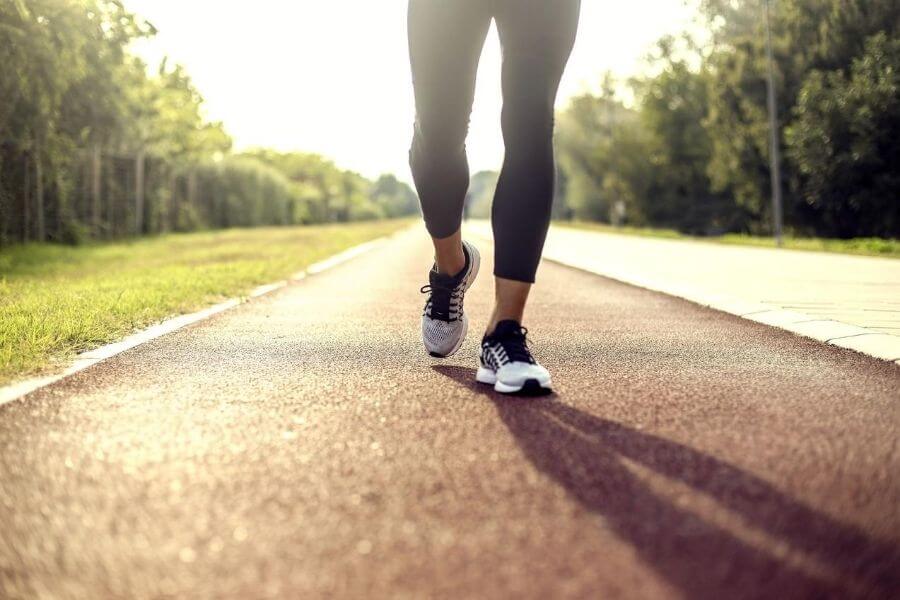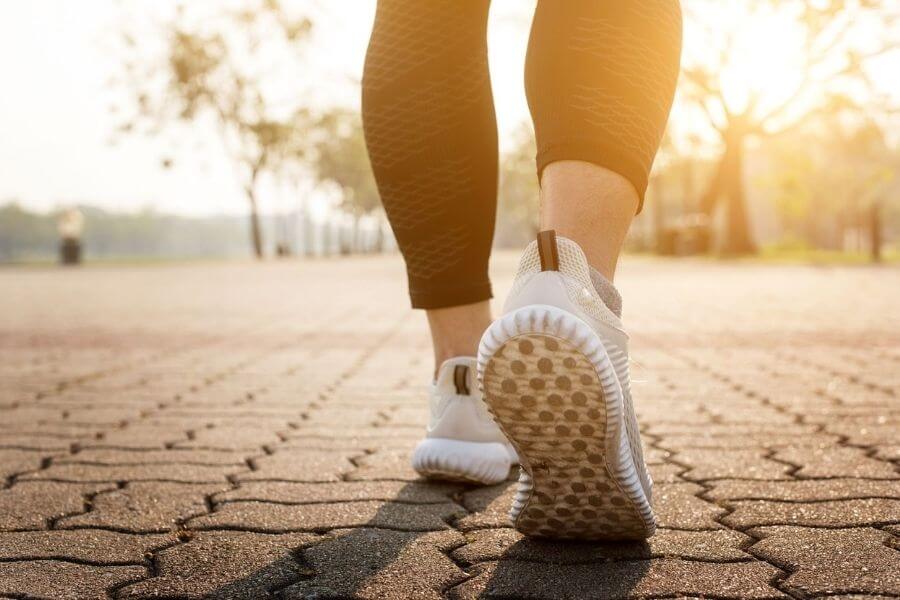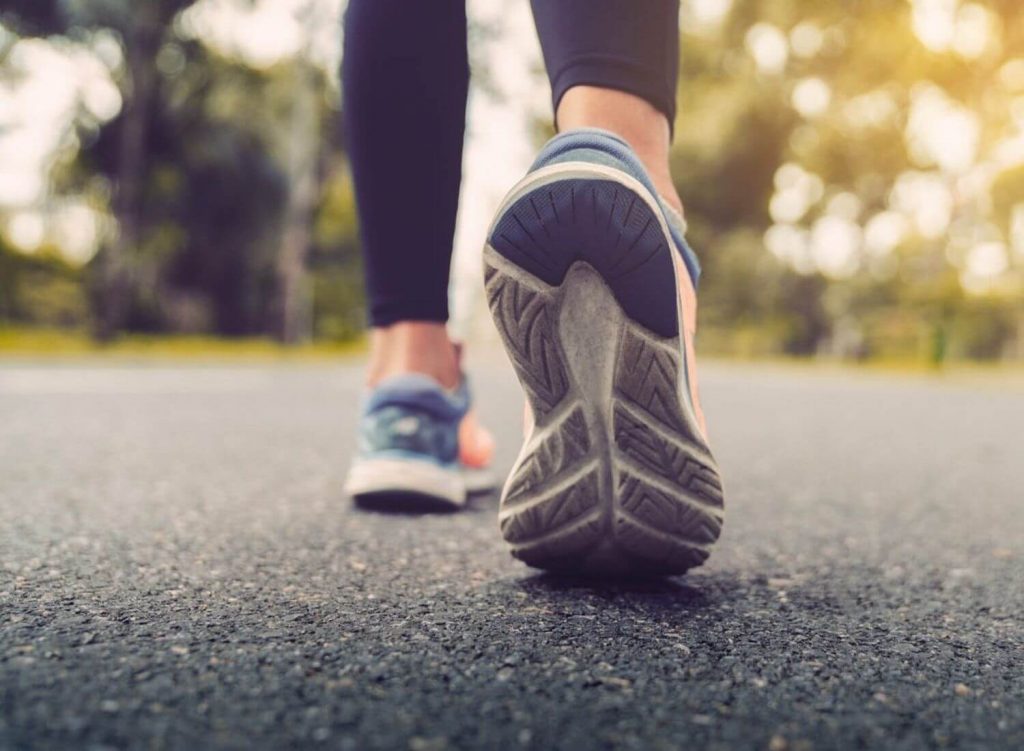Sitting is the new smoking of our generations. The modern world is full of physiological disorders, poor health, mental health, and tension, and the major issues are obesity and correlated conditions like hypertension and diabetes. And walking can provide an easy and comfortable solution to all these problems—one of the health benefits of walking.
Life of some people is like a mad rush from one work to another without any break.
A person belonging to a teenage group or middle age group or older age is playing games over mobile phones. In earlier times, people used to walk a lot daily, which had a salutary effect on their health. In today’s time, a few people in the world care about their health than their daily chores work.
There are many ways by which we can restore our healthfully, and a morning walk is one of them. Walking is the cheapest, most comfortable, and safest of all exercises, and it is suitable for all age groups.
Health Benefits Of Walking
Regular walking is not only enjoyable but also a free fitness regime offering several vital benefits.
1. Burn Calories

Walking daily helps you burn calories. It helps in maintaining your overall weight n losing weight too. To start losing weight, you need to burn 600 calories a day or more, increasing your metabolism faster so the more calories you burn off.
2. Improves Posture

Pay a little attention to your posture when you walk. Keeping a good posture helps you reduce back pain too. It helps to tone abs and reduce the waistline. It also helps to avoid unnecessary pain or strain on the joints, muscles, etc.
3. Toning Muscles And Strengthened Bones

Regular walking can help protect the joints of knees and hips as it lubricates and strengthen the muscles of joints. Walking 5 to 6 miles also helps in preventing arthritis. Walking improves muscle stability, making it stronger with the movements.
4. Reduce Heart Complications

A sedentary lifestyle is the major risk factor for heart diseases. Regular aerobic exercise, such as walking, has proven to improve heart health. Slow walking is recommended with severe heart problems like chest di4 or shortness of breath.
5. Boosts Up Mood

Daily walking increases oxygen flow through the body, and the brain gets active, releasing good, happy hormones known as endorphins. It reduces stress, anxiety, or depression, making you feel good.
6. Regulate Blood Glucose Levels

A short walk after eating meals about 15 minutes a day improves blood sugar levels. After walking, your heart beats a little faster, resulting in more glucose intake by the muscles. This helps in lowering blood sugar levels.
7. Increases Stamina

Walking increases lung capacity, thereby increasing overall stamina. You burn calories more efficiently, improving the physical fitness of the body and its well-being. Walking improves physical strength and endurance.
8. Boost Immune Function

One study shows that walking at moderate space for 30 to 45 minutes a day had fewer sick days and fewer upper respiratory infections overall. Walking boosts your body’s immune system, making it physically fit.
9. Relives Constipation

Walking helps people suffering from severe constipation problems. After waking up early in the morning, move for about 10 to 15 minutes. It helps intestinal muscle that contracts efficiently to move stools out quickly.
10. Ease Back Pain

Sitting over a long period of time, your back gets tensed up. So, a short walk can relieve stiffness and lower back pain. Walking increases proper blood flow, decreasing fatigue, muscular fitness, etc.
11. Improving Thought Process

A morning walk helps to improve cognitive function as it makes you think more creatively. Walking enables proper blood circulation reaching the brain’s cells. When we walk, more blood and oxygen is circulated to the organs and the brain. This boosts creative imagination.
12. During Pregnancy

A short distance walking around 10 to 15 minutes on alternative days improves your fitness and strengthens your blood vessels. It is a safe exercise and the simplest workout for pregnant women without needing any special requirements.
13. Over Greens

Walking barefoot in the morning on grass stimulates a pressure point on our feet, which is believed to be connected to the nerves of our eyes. It helps to refresh and improve your mood too.
Best Time To Walk
A brisk walking about 30 to 45 minutes a day, five times a week is recommended. If you cannot walk for a long way, you can give smaller goals for 10 to 15 minutes and gradually increase the time.
Morning Walk
- Morning walk gives you energy, motivates you to avoid laziness.
- It also creates a positive mindset.
- Cooler temperatures in summer are good for outdoor exercise.
- Lowest air pollution levels.
- The good time to walk is from 5 am to 7 am.
Afternoon Walk
- Useful for those who are tired of household works.
- During office hours, we work or sit for a longer time. You can break up the work by socializing with walking partners in the lobby.
- Ten minutes of walk relax you mentally and physically.
Late Evening Walk
- An evening walk every day makes you feel relaxed.
- Going for a walk after dinner helps in the proper digestion of food.
- Fifteen minutes walk makes you feel refreshed.
Good Place To Walk
With the tremendous health benefits of walking, it is necessary to walk in a peaceful place.
- Open ground with lots of fresh air and greenery
- At your garden area
- In-home galleries
- Home terraces
Tips For A Walking Routine
- Wear loose, comfortable clothes. Shoes and socks should not be very tight.
- Do a slight warm-up or stretches for 5 minutes to prepare for exercise.
- While walking, you can listen to soft, slow music.
- Wear smart fitness bands as it will help you in tracking how many calories you burn up.
- If a person has diabetes, take a small fist of dry fruits to prevent hypoglycemia chances.
- Drink plenty of water before and after your walk to stay well hydrated.
So, “Early To Bed And Early To Rise Makes A Man Healthy, Wealthy, And Wise.”







